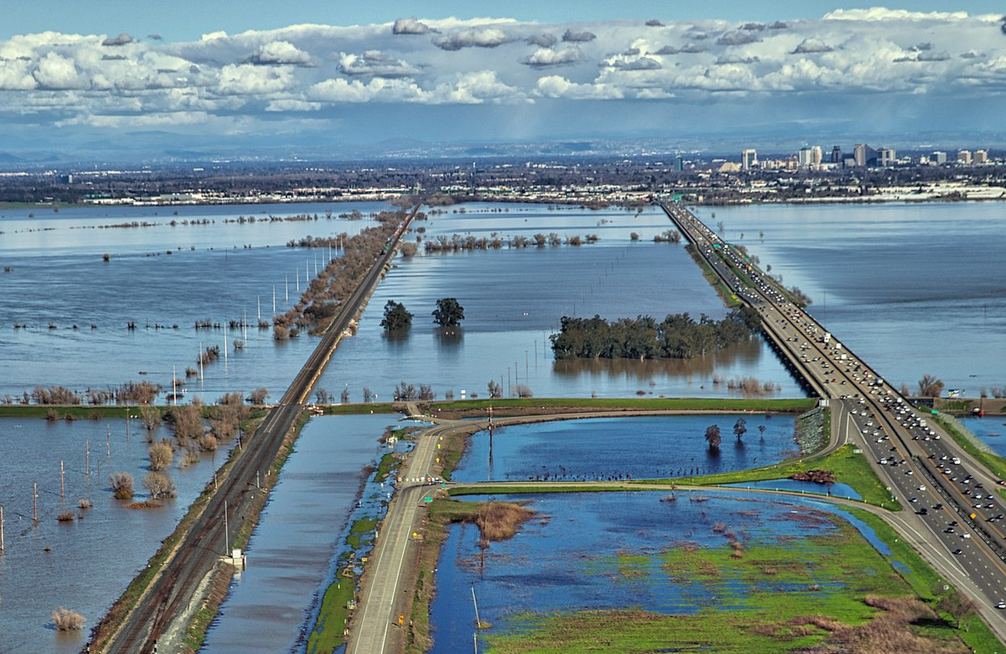A project to widen the Yolo Causeway between Sacramento and Davis has been causing major headaches for freeway planners, who had assumed they could widen that section of I-80 to "solve congestion," but find themselves facing strong opposition from many quarters.
In brief: this is the project that former Caltrans Deputy Director Jeanie Ward Waller raised questions about last year, ultimately leading to her losing her job when she told her bosses she wanted to call in state auditors. Her concern was that Caltrans was using state funding that was not supposed to go towards widening freeways to add a lane to the causeway.
There have been many other concerns raised about the project, from local, regional, and state perspectives. Transportation researchers, environmental and sustainable transportation advocates, and the California Air Resources Board warned that Caltrans' environmental review was inadequate, and that the planned widening would waste public resources and increase vehicle travel through the corridor, ultimately doing nothing to solve congestion in the area.
The CTC was ready to discuss advancing funding to the project in March, but removed it from the agenda when the California Air Resources Board forwarded a letter - which Caltrans had already received as part of its environmental review process - pointing out serious flaws in the environmental review, a final version of which had not yet been released.
Caltrans released its Final Environmental Impact Report as of May 1, but without addressing many of the concerns raised by commenters. Throughout the document, Caltrans and the CTC claim that the project will "decrease congestion through the corridor and the effects congestion has on transit and freight" [emphasis added]. Note that the reference to "transit and freight" is repeated several times, even though the vast majority of traffic in that corridor is made up of single-occupancy vehicles.
The EIR concludes that "the project would have significant and unavoidable impacts on transportation, specifically, vehicle miles traveled," but that "the proposed project benefits outweigh the unavoidable VMT adverse impact."
That is, the fantasy of congestion reduction is a more important state investment than mitigating the health, economic, climate, environmental, and safety impacts caused by increasing VMT. Mitigations are "beyond the control of Caltrans," although it is the agency pushing the state to invest good money in increasing the problems.
This is one of the first major highway projects coming up for approval after Caltrans released its guidelines under S.B. 743, which require measuring and mitigating for increased vehicle miles traveled. That those guidelines can so easily be overridden is maybe a hint as to how seriously Caltrans takes them.
The item will come up on Thursday morning during the CTC meeting, which will start earlier than usual, perhaps in anticipation of a robust public conversation about it. Will those public comments affect the CTC's decision on whether to approve the EIR and advance funding to the project? Judging from past CTC decisions, that's unlikely.
But many will be listening to and participating in that conversation.
This weeks' meeting starts at 9 a.m. on Thursday and will continue on Friday. It will take place at the Orange County Transportation Authority Board Chambers at 550 S. Main Street in Orange, and can also be attended online. Registration information is on the agenda.






